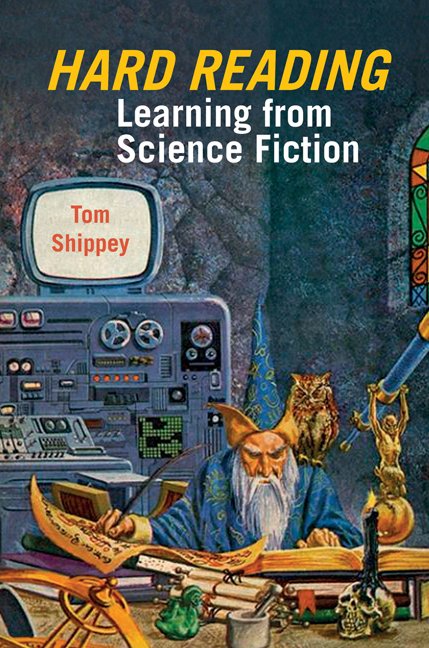Book contents
- Frontmatter
- Dedication
- Contents
- List of Figures
- Note on References
- A Personal Preface
- What SF Is
- SF and Change
- 4 Getting Serious with the Fans
- 5 Getting to Grips with the Issue of Cultures …
- 6 … And Not Fudging the Issue!
- 7 SF Authors Really Mean what they Say
- 8 A Revealing Failure by the Critics
- 9 A Glimpse of Structuralist Possibility
- 10 Serious Issues, Serious Traumas, Emotional Depth
- SF and Politics
- References
- Index
9 - A Glimpse of Structuralist Possibility
from SF and Change
- Frontmatter
- Dedication
- Contents
- List of Figures
- Note on References
- A Personal Preface
- What SF Is
- SF and Change
- 4 Getting Serious with the Fans
- 5 Getting to Grips with the Issue of Cultures …
- 6 … And Not Fudging the Issue!
- 7 SF Authors Really Mean what they Say
- 8 A Revealing Failure by the Critics
- 9 A Glimpse of Structuralist Possibility
- 10 Serious Issues, Serious Traumas, Emotional Depth
- SF and Politics
- References
- Index
Summary
Like item 4, above, this piece started as a talk delivered at the Birmingham Novacon, that of 1974. It too turned into an article in Foundation, and formed the basis for successive entries on ‘Magic’ in the Nicholls and Clute (subsequently the Clute and Nicholls) Encyclopedias of 1993 and 1999. Since then the ‘New Age’ movement has led to a considerable revival of interest in magic. Ronald Hutton's 2003 discussion (see especially his chapter 4) covers the long nineteenthand early-twentieth-century arguments about it better than I can. In an article of 2007, not included here, I tried to work out what Tolkien, Charles Williams, and most of all C.S. Lewis thought about it, Lewis being extremely learned in the recondite field of Renaissance magical and proto-scientific thinking, and typically coming out with highly and deliberately contrarian answers.
However, rereading this piece years later reminds me as usual most of all of what I did not know back then. One thing I did not know was that not only did Randall Garrett write his ‘Lord Darcy’ stories about magic for John W. Campbell, he was also busily writing ESP stories for him at the same time, as ‘Mark Phillips’ and in collaboration with L.M. Janifer. If I had known this, I might have made more then of the point about Garrett's Sir Thomas Leseaux (on p. 177). When the magic theorist in the alternate world angrily dismisses as old-wives’ tales things that we know work (like penicillin and digitalin), there is a deliberate parallel with the scientific theorist in our world angrily dismissing things that, well, are rumoured to work, but which cannot be admitted to work because they do not fit current scientific paradigms: phenomena like dowsing, or telepathy, or ghosts, or supernatural apparitions and warnings. All this was very much part of Campbellian sf. Much of it went well off the rails, like dianetics and the famous ‘Dean Drive’ for spaceships, and most of all Scientology.
- Type
- Chapter
- Information
- Hard Reading: Learning from Science Fiction , pp. 160 - 181Publisher: Liverpool University PressPrint publication year: 2016



